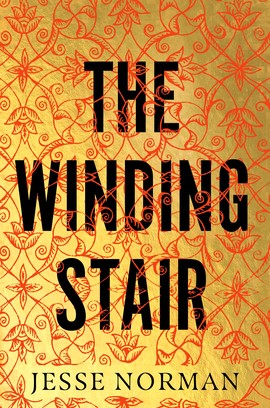Jesse Norman The Winding Stair

A Tory novel in the learned tradition of Benjamin Disraeli.
This is the first book I have received as a physical proof for review, a few weeks ahead of publication. Following an exchange on Twitter, I was kindly sent the book by Biteback Publishing. This appeals to my sense of irony, given that Jesse Norman is a Conservative MP, and current government minister. By contrast, I am the author of books, about politics and history, critical of the Conservative Party!
The proof arrived with an information sheet, showing that Norman’s novel has received pre-publication plaudits from Michael Dobbs, Stephen Fry, Suzannah Lipscomb, and Andrew Roberts. Having read the book, I do not fully share the acclaim bestowed by other – more knowledgeable than myself – advance reviewers.
“The Winding Stair”, spanning the years from 1570 to 1626, is basically a drama drawn from the factual life of Francis Bacon, a man on the fringes of government during the reign of Elizabeth I, and at the centre of events under James I. Bacon was a Member of Parliament, and government lawyer, whose lasting reputation rests on his philosophical writings, including the book “Essays”. Modern day suggestions that Bacon was also the author of William Shakespeare’s plays appear wide of the mark.
Jesse Norman has previously written biographies of Adam Smith (free market liberal economist whose name has been kidnapped by Thatcherite lobbyists, masquerading as a “think tank”), and Edmund Burke (Whig politician posthumously appropriated by the Tories). I wonder why Norman moved to semi-fiction for the work on Bacon? Perhaps the reason is that much of “The Winding Stair” deals with the rivalry between Bacon and Edward Coke (pronounced cook, as opposed to coke, the drug rumoured to fuel some contemporary Parliamentary debate). Norman presents many events from the perspective of Coke.
Norman covers a lot of ground, at a good pace – with the 460 pages being divided into 105 short chapters – but there is little mystery, or narrative tension, in the novel. There is a lot of antiquated dialogue, in both speech and quotes from correspondence between characters. There are also a lot of characters, well actually real people, mentioned in the book. It is difficult to keep track of the many rising stars, or fringe figures, at the royal court, and in the various courts of law. Norman obviously has a lot of knowledge of the subjects he covers but, it appeared to me in reading, some of the detail is there to show his skill, rather than help the reader understand the basic plot. There is a lot of plotting against each other by various people here! I think I have a fair grasp of the history and politics of the era, but wonder what sort of readership the book is aimed at, given that most people probably have little enthusiasm for the detail of a legal system that was in place about four hundred years ago.
Francis Bacon is shown by the author of the novel to have many abilities, but he is consumed by ambition, rather vain, and increasingly corrupt. His main aim is the advancement of himself, although Bacon convinces himself that the motive is to serve the reigning monarch, in the wise government of the nation. Bacon has a long term plan for power. Bacon uses a lot of Latin, and classical allusion, leading me to believe that Norman sees him as a model for Boris Johnson, the boy who wanted to be “world king”, but became the most dishonest Prime Minister Britain has ever endured. Coke exceeds Bacon in legal esteem, while matching him for ruthless self-serving, dressed up as veneration for Magna Carta. Coke is in thrall to the often imaginary traditions of the English legal system, devised by a tiny proportion of men, who had influence in the centuries before there was even a pretence of democracy.
If this is a satire, in which Bacon is Johnson, I do not know who (if anyone) Coke is supposed to represent. Edward Coke, as rendered by Jesse Norman, seems too logical to be Dominic Cummings, and too charismatic to be Keir Starmer!
Nearly every character in Jesse Norman’s book is a wealthy and powerful man. The few women here, apart from Queen Elizabeth, are either the mothers, wives, or daughters of these men. Several daughters are coerced into marriage, sometimes at an early age. There are no ordinary men and women here.
As the book progresses, Parliament increasingly seeks to assert its role. Some MPs even challenge corruption in government circles, tackling ministers who pocket fees from the offices they hold. What would they make of the current day VIP Lane, for Covid contracts, ruled unlawful by the High Court last year, or the Supreme Court’s 2019 judgement over-turning Johnson’s decision to advise Elizabeth II to prorogue Parliament for several weeks?
There is no sign in Norman’s book that Bacon, and his circle, imagine that supporting the increasingly autocratic rule of James I – with the excesses of the royal prerogative justified by the divine right of kings – will encourage such tendencies in his son, Charles I, the latter of whom became king in 1625. Charles’ conflict with Parliamentarians, in the 1640s, led to civil war, and a radical politics that challenged, and temporarily abolished, the English monarchy.
Despite reservations, I did actually find Jesse Norman’s “The Winding Stair” an interesting, even impressive, read. This is a Tory novel in the learned tradition of Benjamin Disraeli, rather than the sensationalism of Jeffrey Archer. Norman’s narrative certainly prompted me to consider anew the links between our political past and present. Time now to stand back, and wait for the author to join the handful of Tory MPs who have blocked this satirical commentator on Twitter!